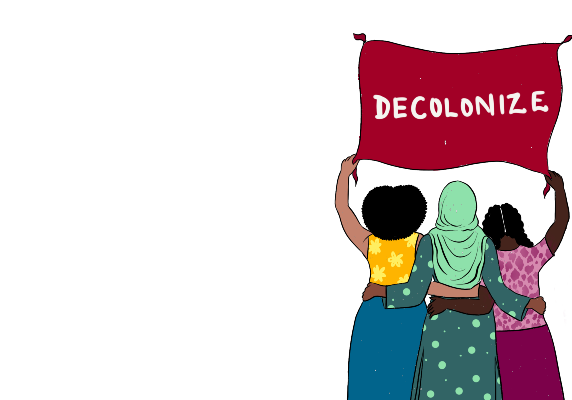Interrogating INGOs’ dual salary systems to address inequality
We need to think critically about HR and organisational policies if we want to address power and privilege in INGOs.
Whose voices and contexts do policies reflect? What unconscious biases are implicit within them? And in what ways might internal policies be reinforcing and reproducing inequalities, despite best intentions?
I come to these questions through my work on fair pay in international aid and development organisations over the past 10+ years. I was initially drawn to a very specific problem: understanding the impact on employees of dual salary systems.
Local staff get paid less than international staff
Dual salaries are the common practice of paying skilled local/national employees less than expatriate/international counterparts, by using different pay scales and benefits packages. My early research pointed to big disparities between the salaries and benefits packages for colleagues who were similarly skilled and educated, but who came from different countries.
Unsurprisingly, we found that dual salaries were detrimental to employee motivation, job satisfaction, engagement and retention – and particularly for local/national staff. This system also impedes relationship building and cross-border teamwork, while undermining staff capacity building initiatives.
Pay is meant to motivate employees and reward their skills, but this research suggests that the opposite is often the case, pointing to a fundamental problem in how pay is structured.
Changing pay is no small task, but we can do it
There is no quick fix. Existing systems are deeply institutionalised, and embedded within complex histories and pressures to deliver programme outcomes. What’s more, changing pay structures can literally have implications for the viability of programmes (and even organisations) if existing employees leave, or if pay packages are not attractive enough to potential recruits. This makes the challenge to change even more difficult. Yet running concurrently are seemingly contradictory pressures of localisation, capacity building, and ownership.
Subscribe to our newsletter
Our weekly email newsletter, Network News, is an indispensable weekly digest of the latest updates on funding, jobs, resources, news and learning opportunities in the international development sector.
Get Network NewsHow can pay structures be changed in ways that support equity, localisation and accountability, but ensure delivery of quality programmes? And how can organisations be confident of making changes to their pay systems, without risking their own viability?
These fundamental questions are the focus of our work in Project FAIR, which brings organisations together to share learning and experiences on alternatives to dual salaries. We want to reach a shared understanding of what fair pay is, and how to develop pay structures that better reflect the values of the international development sector.
We’ve developed a set of principles and standards of Fair INGO reward. We’ve also identified important strategic considerations underpinning fairer pay and used these to create a toolkit for organisations considering change (as well as a set of case studies).
Dual salaries reflect broader inequalities
But the further we went, the more we appreciated the depth of the issues involved. It isn’t enough to only look at pay disparities. Pay structures reflect broader historical and colonial dynamics of power and privilege within the sector. Unfair pay is just one manifestation of deeper issues of structural inequality.
Addressing these structural issues requires difficult discussions within the broader sector on how existing systems and structures might perpetuate the very inequalities we seek to address. These discussions must include donors, and a recognition of how funding parameters (such as educational requirements) might restrict progress toward fairer, more equitable, systems.
Take the first step in your organisation
As a first step, within your own organisation, I challenge you to critically interrogate your own HR and organisational policies by considering:
- where and by whom are policies defined and decided?
- whose voices are heard and have most influence?
- what assumptions are policies based on and why? How appropriate are they across different cultures?
The INGO Fair Reward Network meets regularly to discuss and share ideas, knowledge and experiences. We have a longstanding group of reward managers working on fair pay issues, and a newer group of equality, diversity and inclusion focal points taking these questions further and deeper. If you are interested in being part of these discussions, please get in touch.
Category
News & Views



